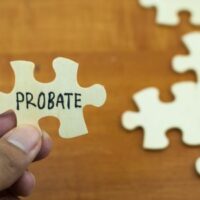Is A Person’s Interest In A Limited Liability Company A Probate Or Non-Probate Asset?

A common source of estate litigation in Florida is the question of what is considered a “probate” asset in the first place. For example, it is well understood that assets placed in a trust or subject to a payable-on-death designation are non-probate assets. But other assets may fall into more of a gray area where there may be competing claims from both the probate estate and potential non-probate beneficiaries.
How State Laws May Differ When It Comes to Disposing of Assets
Take a person’s interest in a limited liability company (LLC). Is an LLC membership a probate asset subject to the owner’s will, or can it be disposed of in a non-probate transfer made through the LLC’s operating agreement? The answer to these questions may depend not only on the applicable probate law, but also the laws governing the operating agreement itself.
For instance, in 2015 the Florida Fourth District Court of Appeal held that an LLC operating agreement properly vested a deceased member’s interest with his children upon his death. In this case, Blechman v. Estate of Blechman, the deceased member also left a will that directed his estate to turnover any remaining probate assets to a trust. Litigation arose over whether to transfer the LLC membership as directed by the operating agreement or the will.
The Fourth District noted that the operating agreement was subject to New Jersey law, and Florida law required the Court to respect that choice. And “New Jersey permits the members of an LLC to include a provision in an operating agreement that will be followed upon the death of a member.” In other words, under these facts the LLC membership was a non-probate asset and not subject to the deceased member’s will.
But other states may have different law on this subject. Take this more recent decision from the Maryland Court of Special Appeals, Potter v. Potter. Similar to Blechman, the decedent in this case had an interest in a Maryland limited liability company, which specified who would receive that interest upon his death. But after the member died, his estate argued that transferring an interest via operating agreement did not comply with Maryland law. The Court of Special Appeals agreed, explaining that the LLC interest was considered a probate asset, and as such any disposition of that asset had to follow Maryland’s laws regarding wills, which the LLC operating agreement did not.
The Maryland court also made a point of distinguishing this case from Blechman. As noted above, the Florida court relied on New Jersey law to interpret the relevant operating agreement. And New Jersey, unlike Maryland, permits parties to dispose of property by contract without having to adhere to the same formalities as a will.
Speak with a Florida Probate Litigation Attorney Today
When it comes to property interests governed by contract, such as membership in an LLC, it is important to first determine which state laws may apply to their classification and disposition. An experienced Pompano Beach probate vs. nonprobate assets lawyer can provide you with specific guidance on this subject. Contact the offices of Mark R. Manceri, P.A., today to schedule a consultation.
Sources:
scholar.google.com/scholar_case?case=3006735839751579793
scholar.google.com/scholar_case?case=15605955844899028224

 Mark R. Manceri, P.A. is a boutique law firm that specializes in Estate, Trust and Guardianship litigation. These matters include Will and Trust contests involving lack of capacity, undue influence, forgery, improper execution and tortious interference...
Mark R. Manceri, P.A. is a boutique law firm that specializes in Estate, Trust and Guardianship litigation. These matters include Will and Trust contests involving lack of capacity, undue influence, forgery, improper execution and tortious interference...